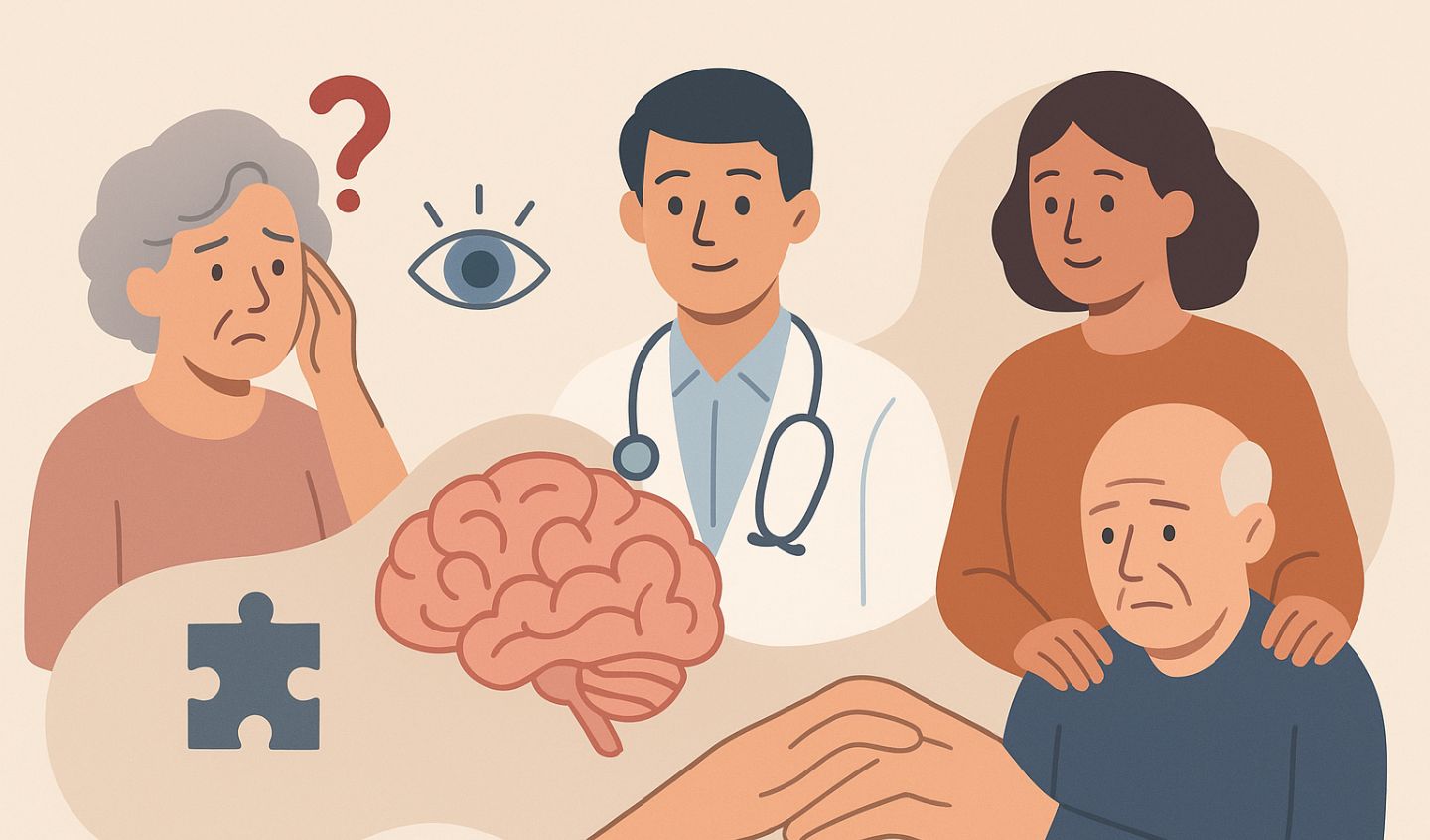When the word “dementia” is mentioned, most people immediately think of Alzheimer’s disease.
While it is the most prevalent cause, dementia is not a single condition. Instead, it is an umbrella term for a wide range of neurocognitive disorders that impact memory, thinking, and the ability to perform everyday activities.
For families and caregivers, understanding that dementia has many forms is the first step toward better management and care. A specific diagnosis can unlock more effective treatment strategies, provide a clearer outlook on progression, and ultimately improve the quality of life for the person affected.
Let’s explore some of the most significant, yet lesser-known, types of dementia.
1. Vascular Dementia
Considered the second most common type, vascular dementia is caused by conditions that damage blood vessels in the brain or interrupt the flow of blood and oxygen. This damage can result from a single major stroke or a series of smaller, often unnoticed, strokes (known as multi-infarct dementia).
- Key Symptoms: The progression of vascular dementia often occurs in distinct steps, with abilities declining after a stroke and then remaining stable for a time. Key signs include:
- Difficulties with problem-solving, planning, and decision-making.
- Slowed thought processes.
- Problems with balance and an unsteady gait.
- Sudden onset of confusion.
2. Lewy Body Dementia (LBD)
This type of dementia is caused by the buildup of abnormal protein deposits, known as Lewy bodies, in brain cells. These deposits disrupt the brain’s chemistry and lead to problems with thinking, movement, behaviour, and mood.
- Key Symptoms: LBD has a unique combination of symptoms that can make diagnosis challenging. The most prominent are:
- Fluctuating Cognition: Individuals can have significant variations in attention and alertness, shifting from clarity to confusion over short periods.
- Visual Hallucinations: Seeing people, animals, or objects that are not there is a common early symptom.
- Parkinson’s-like Movement Issues: Symptoms like muscle rigidity, a shuffling walk, and tremors are often present.
3. Frontotemporal Dementia (FTD)
Frontotemporal dementia results from the progressive loss of nerve cells in the brain’s frontal lobes (behind the forehead) or temporal lobes (behind the ears). FTD tends to affect people at a younger age than other forms of dementia, with onset often occurring between 40 and 65.
- Key Symptoms: Because FTD affects the parts of the brain associated with personality and language, early symptoms are often behavioural rather than memory-related.
- Behavioural Changes: Drastic shifts in personality, such as developing socially inappropriate behaviour, loss of empathy, or becoming impulsive and apathetic.
- Language Problems: Increasing difficulty using and understanding written and spoken language.
The Power of Knowledge and Support
Distinguishing between the types of dementia is not just an academic exercise—it has real-world consequences for care. The right diagnosis can lead to appropriate medical management, help families anticipate future challenges, and inform the daily strategies used to support the individual.
Navigating this journey can be challenging, but you are not powerless. The first step is always to seek a thorough evaluation from a qualified medical professional, such as a neurologist or a geriatrician. Armed with a clear diagnosis, families can begin to build a network of support and find the resources they need.
A Partner in Care: How Tapas Elder Care Can Help
While the information above provides a starting point, navigating the day-to-day realities of a dementia diagnosis requires specialized, compassionate support.
At Tapas Elder Care, we understand that every individual’s journey with dementia is unique. Our team is professionally trained to recognize the distinct needs associated with different types of dementia—from managing the behavioural changes of FTD to ensuring the safety of a loved one experiencing the fluctuations of LBD. We create personalized care plans in a safe, dignified, and nurturing environment that focuses on maximizing comfort and quality of life.
If you are seeking a supportive community and an expert care plan for a family member, contact Tapas Elder Care today to learn how we can walk alongside you on this journey.





